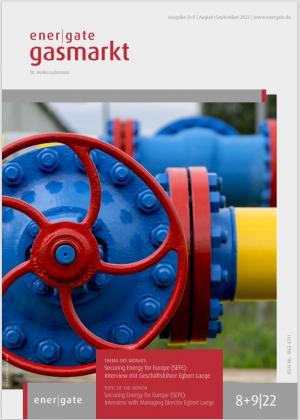The developments around to the Gazprom Germania Group (GPG) over recent months are probably not only among the weirdest events in the German gas market, but in German industrial history. As if with a magnifying glass, the German/European gas crisis – which began even before the Ukraine war and then escalated further – is concentrated in the company. Gazprom Export's attempt to give up control of the company and transfer ownership to a DJ and car dealer are real-life comedy. But the move was also an immense threat to the German gas industry and economy. The German government reacted quickly and put the group under the trusteeship of the German regulatory authority, BNetzA. Basically, since the beginning of this trusteeship, Egbert Laege has not only been involved, but one of the core players. First as general representative of the trustee and since 3 June as managing director of GPG. The company is now renamed Securing Energy for Europe (SEFE), has been provided with loans of 9.8 billion euros guaranteed by the Federal Republic of Germany and is looking ahead. Or, as Mr Laege expressed it, "Is back in Town". I spoke with Mr Laege about what this means. Part of the interview appeared in advance in the ener|gate publication ener|gate Messenger.
ener|gate Gasmarkt: To start with the point that I still understand the least. At what points in time were the Gazprom contracts with the various companies of the GPG Group no longer fulfilled? There was a long-term contract with Gazprom Marketing & Trading (GM&T), contracts with Wingas and with WIEH.
Mr Laege: When the sanctions were imposed on GPG on 11 May 2022, all of the group's gas supplies were affected and have been reduced to zero. We have not received any Russian pipeline gas since then...



